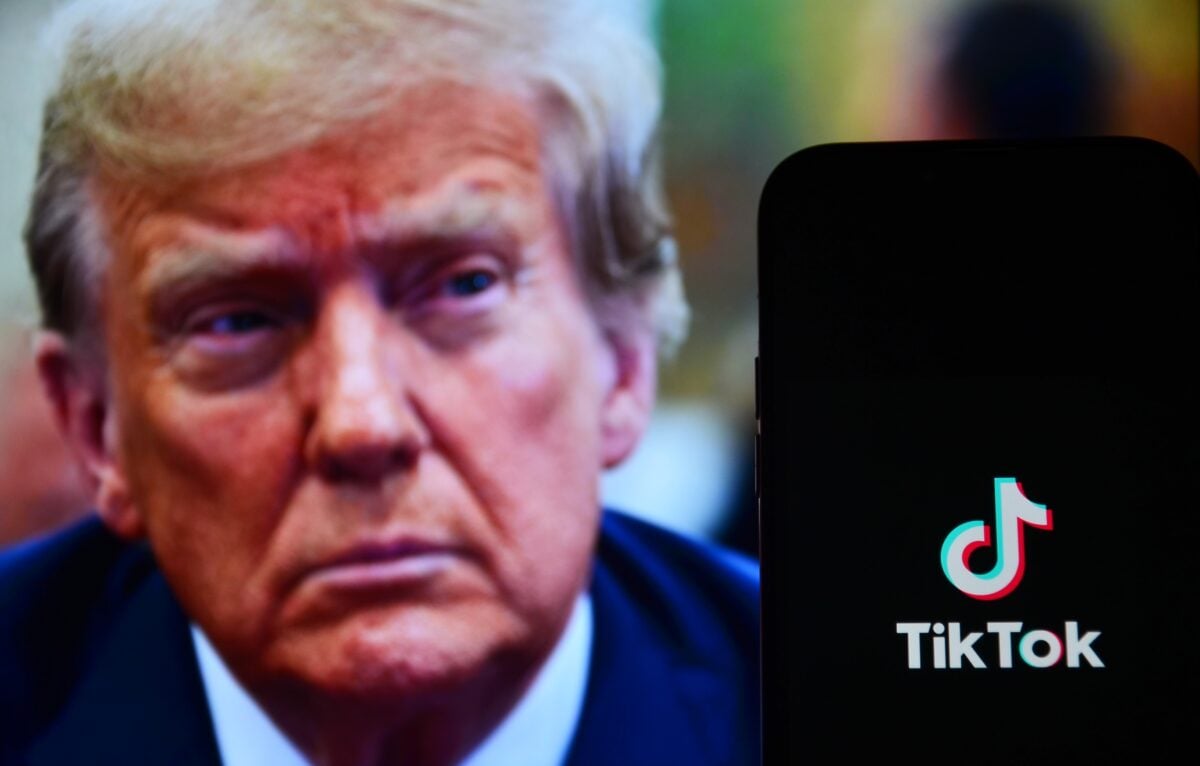TLDRs;
- Trump dismisses TikTok security concerns as “overrated,” suggesting flexibility on the September 17 sale deadline.
- White House joins TikTok despite its divestiture demands, highlighting contradictions in security rhetoric vs. platform adoption.
- Bipartisan lawmakers push for ByteDance to sell TikTok’s U.S. assets, citing ongoing risks of Chinese control.
- TikTok’s global complexity makes divestiture far harder than previous forced sales, fueling repeated deadline extensions.
Former U.S. President Donald Trump has once again cast doubt on Washington’s hardline stance against TikTok, calling long-standing national security concerns over the Chinese-owned platform “highly overrated.”
The remarks come as ByteDance faces mounting pressure to divest its U.S. operations or risk a potential ban under a 2024 law.
Speaking earlier this week, Trump said he may extend the September 17 deadline for ByteDance to finalize a sale of TikTok’s American assets if “circumstances require.” His comments followed closely after the White House itself launched an official TikTok account, a move that further blurred the lines between political rhetoric and practical adoption of the platform.
Bipartisan Lawmakers Demand Action
Congress has long voiced concern that TikTok, which operates in 150 markets and supports 75 languages, poses risks to U.S. national security by allegedly enabling data sharing with the Chinese government.
Lawmakers from both parties have urged a swift divestiture, arguing that delays only increase the potential exposure of U.S. users’ data.
The 2024 legislation mandated that ByteDance either divest TikTok’s U.S. operations or show credible progress toward doing so. The original enforcement deadline was set for January 19, but Trump has repeatedly postponed it, despite bipartisan criticism.
Global Footprint Complicates Divestiture
Analysts note that the operational complexities of splitting TikTok’s U.S. operations from its global ecosystem make compliance with divestiture demands far more difficult than traditional corporate sales. Unlike past forced divestments, TikTok was built as an integrated global platform from the ground up.
With more than one billion downloads worldwide and an average of 52 minutes of daily usage per user, the app’s infrastructure is deeply interconnected. Attempting to carve out U.S. operations without disrupting the platform’s international framework has become a major stumbling block, leading to repeated deadline extensions.
This global complexity explains why Trump has been reluctant to enforce the law’s strict timelines, even while acknowledging pressure from lawmakers.
“There are buyers interested,” Trump said, without naming any companies, “but this process isn’t simple.”
Security Concerns vs. Political Realities
Critics argue that Trump’s softened stance highlights a growing disconnect between national security warnings and political realities. While Washington continues to scrutinize TikTok’s data practices, the platform is gaining ground among institutions, politicians, and government agencies.
The fact that the White House recently joind TikTok underscores this contradiction. Despite investigations dating back to 2019 and previous fines against ByteDance for child privacy violations, TikTok remains an essential communication tool for reaching younger audiences. Roughly 40% of its users are under the age of 24, a demographic highly sought after in U.S. politics.
Observers suggest that politicians’ need to engage younger voters may outweigh their stated concerns about foreign data risks. The platform’s unmatched reach and engagement metrics make it an irresistible tool, even for those who question its safety.
What Comes Next
Whether Trump decides to extend the September 17 deadline could shape TikTok’s future in the United States. If no sale agreement is reached, the app technically faces the possibility of a nationwide ban, though many doubt such a move will be enforced.
For now, the situation remains a balancing act between national security, political strategy, and global business complexity. Trump’s latest remarks suggest he is prioritizing pragmatism over hardline enforcement, even as bipartisan voices push for stronger action.







